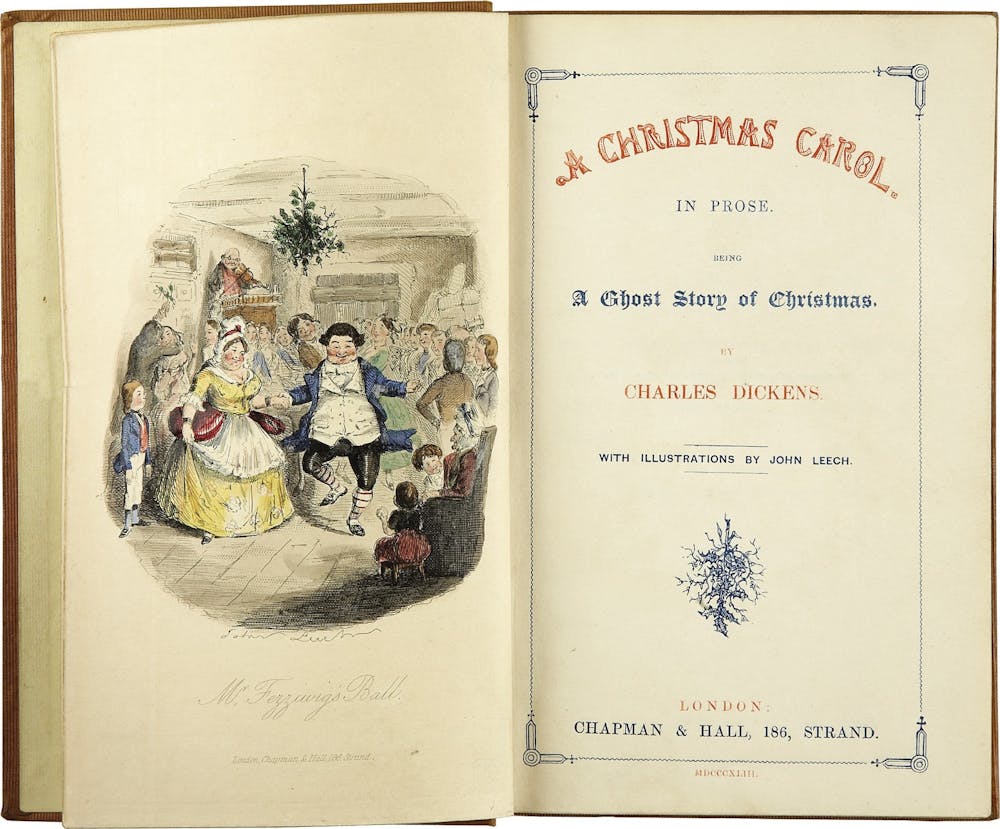FX aired a novel take on Dickens’s classic “A Christmas Carol” Thursday, notably excluding Kermit the Frog from the cast — though the film could certainly have used the levity. A darker, heavier reimagining, both thematically and visually, gave the adaptation a certain maturity, setting it apart from those that came before it and perhaps justifying its creation. The adaptation, however, fumbled the opportunity to employ such maturity in ways that thoughtfully explored the more complex ethical dilemmas introduced by Dickens, or even in ways that made for a particularly chilling ghost story.
The film roughly follows the original narrative, and at its onset, seems to have a screenplay that feels more like a paraphrase than an exact replication of Dickens’s words — an initially refreshing feature for those all-too familiar with the 1843 text. The resemblance to the text ends there, however, as the narrative of the original, with time, becomes increasingly distorted. Taking minor details and expounding on them with extreme creative liberties, the film fabricates tangential subplots that are more distracting and shocking than thoughtful or interesting.
One of these is the subplot of Scrooge’s sexual abuse at the hands of a schoolteacher, an arrangement made with the knowing consent of Scrooge’s father. Another is the painting of Scrooge and Marley as murderers responsible for the untimely deaths of hundreds of their factory workers. Seeking to explain Scrooge’s abrasive disposition, these fabricated details certainly add novelty, but are left largely unresolved in the broader storyline — the chipper ending characteristic of every “Christmas Carol” adaptation feels off-putting and inappropriate given the sheer weightiness of these issues. The film may have introduced more than it could have possibly resolved, even going so far as to give Mrs. Cratchit the magical ability to conjure spirits. Giving the normally overlooked character of Mrs. Cratchit some agency in this way is an admirable addition, but ultimately served as another unnecessary, distracting detail.
To an audience anticipating a darker take on the original, perhaps these plot points are enrich an almost two-centuries-old story — but what they certainly do not do is help cut down the film’s run time. Coming in at just under three hours, the story drags on with a crushing weight comparable to that of Marley’s chains. Excessively long, panning shots of near-empty rooms, a color scheme consisting exclusively of black and blue and repetitive scenes that seem never-ending, all contribute to a weightiness that is certainly consistent to the story’s dark content. The slowness of it all, however, detracts from what might otherwise be redeeming features of the movie. Certain shots, such as the metaphysical drowning of Tiny Tim that superimposes the freezing lake with the ceiling of Scrooge’s office, are incredibly beautiful and neat to witness, but they are few and far between.
The timing of the film is nonsensical and lopsided, taking the entire first hour to establish setting, character and complex backstory before Marley ever even appears to Scrooge. Dickens’ novella is divided into staves, evenly distributing the most important events; this adaptation takes so much of its run time to establish Marley’s purgatory and Scrooge’s personality that the final ghost stories are completely rushed. Notably, however, this movie was actually designed to be released in serialized installments, and it has been airing on BBC One in daily episodes since Sunday. Dividing the movie in this way may have alleviated the painstaking slowness of its first two acts, but would not change just how concentrated and rushed the third act is — what results is a quick turnaround for Scrooge that is neither believable nor particularly touching.
By virtue of its sheer length, FX’s “A Christmas Carol” took many creative liberties, some of which paid off, but the majority of which were simply bizarre. Perhaps it will be better received in the United Kingdom, where the winters are just as harsh and cold as this novel adaptation.







